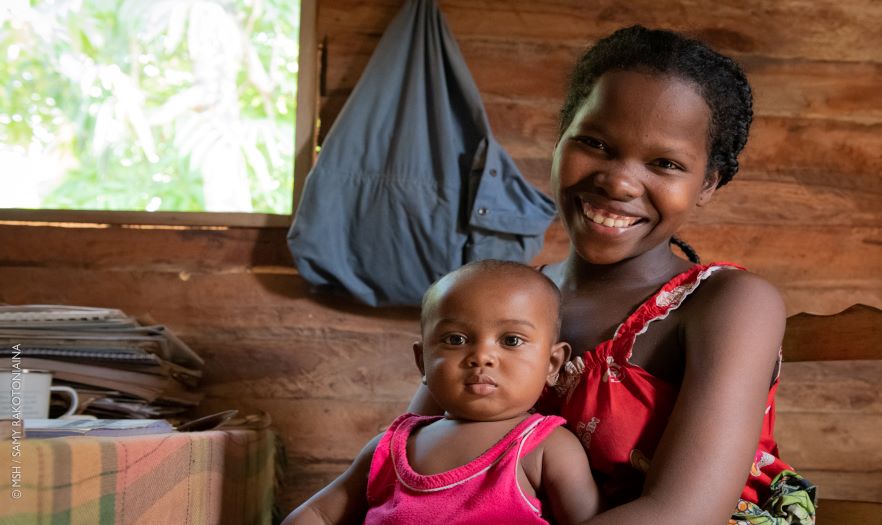By Jane Briggs, Senior Principal Technical Advisor, and MNCH Lead, MTaPS
Proper management of childhood pneumonia is straightforward—diagnose it correctly; administer a course of an appropriate, quality antibiotic (oral amoxicillin, according to WHO treatment guidelines); and administer medical oxygen, if the child needs it. But in many low- and middle-income countries, pediatric forms of amoxicillin, such as dispersible tablets—although inexpensive and effective—are not reliably accessible where needed, and available supplies may not meet quality standards or be appropriately used. Access to medical oxygen is often poor as well.
So, every minute—more than 700,000 times a year—another child dies needlessly from pneumonia or other treatable respiratory infections because they didn’t have access to the quality lifesaving medicine they need.

Photo credit: MSH/Samy Rakotoniaina
We know why these tragic deaths happen: We need to act. , the USAID MTaPS Program and a core group of partners identified four key bottlenecks hindering uptake of amoxicillin (poor quantification of need, insufficient financing, lack of quality assurance, and inappropriate use) and explored solutions with a large group of stakeholders.
The USAID MTaPS program, which aims to strengthen pharmaceutical systems to ensure access to and appropriate use of safe, effective, and quality medicines and technologies, has implemented interventions to address some of these bottlenecks.
Poor quantification of need, caused by poor quality or nonexistent data, can lead to insufficient procurement and ultimately stock-outs at the point of service. MTaPS recently updated
a forecasting guide to help program managers, service providers, and technical experts more accurately quantify needs for amoxicillin and other priority reproductive, maternal, newborn, and child health medical products.
Lack of quality assurance contributes to inconsistent quality of amoxicillin and other essential medicines, including widespread distribution and use of substandard and counterfeit medicines. Based on
an MTaPS study showing that many countries had not yet even registered products for amoxicillin DT (dispersible tablets) or put regulatory frameworks in place for registering medical devices and medical gases, we helped regulators in Mozambique
work more effectively with applicants and
assess bioequivalence studies to speed up their assessment of generic oral medicines, like amoxicillin. In Rwanda, MTaPS strengthened capacity for assessing medical devices and helped develop standardized procedures for registering and listing them.
Inappropriate use of antibiotics, resulting both from improper prescribing and administration and from failure to adhere to a full course of treatment, leads to poor health outcomes for children with pneumonia and to increased antimicrobial resistance. To help countries bolster adherence to treatment with amoxicillin DT and adherence of health care providers to treatment protocols, MTaPS updated a .
These interventions, of course, are not enough. To address the barriers that hinder access to and appropriate use of amoxicillin, all stakeholders need to play a role. Focusing on those four key bottlenecks, governments, donors, implementing partners, and civil society must come together to prioritize treatment of childhood pneumonia, coordinate multifaceted activities (as emphasized in the
USAID MCHN roadmap), strengthen supply chains, train health workers, and engage communities.
The solution is in our hands: We can save the hundreds of thousands of children who needlessly die each year from pneumonia.
On this World Pneumonia Day, let us all commit to take action now.
